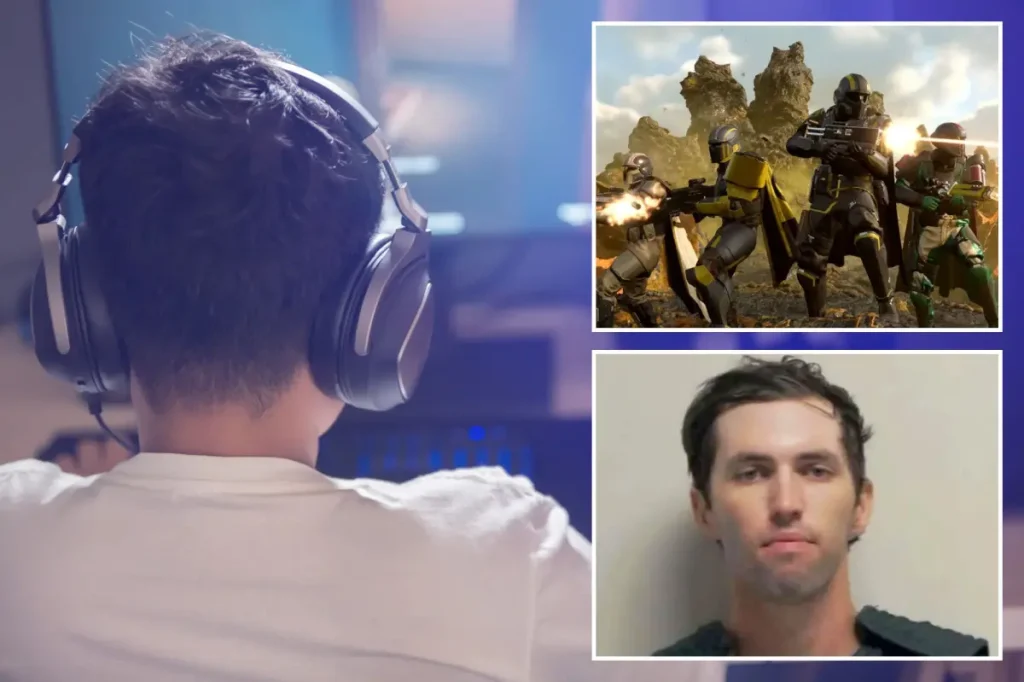Gaming Communities: The Social Frontier Where Connection and Extremism Collide
In the vibrant digital landscape of modern gaming, a pirate impatiently jiggles his leg on a computer screen, occasionally sipping rum as dark skies pour rain above a swirling sea. This animated character, controlled by a young man with a goatee who calls himself HitboTC, is navigating the virtual waters of “Sea of Thieves” – a wildly popular multiplayer game that has reportedly sold 1.8 million copies on PlayStation alone. While playing, HitboTC simultaneously comments into his microphone, communicates with fellow players through his headset, and livestreams the entire experience to his 194,000 Twitch followers. After his gaming session, he’ll continue discussions about his in-game strategies on Discord, a messaging platform that has become the central nervous system for gaming communities worldwide.
This interconnected gaming ecosystem – where players spend an average of 20 hours weekly immersed in digital adventures like “Sea of Thieves” – has recently attracted attention for disturbing reasons. Tyler Robinson, who allegedly shot conservative speaker Charlie Kirk in September, was an avid player who reportedly confessed to the shooting in a Discord chat channel. Thomas Crooks, who shot President Trump at a Pennsylvania campaign rally in July 2024, was well-known among Discord users. Fourteen-year-old school shooter Colt Gray detailed his plans for attack on the platform, and recently, two New Jersey teenagers were arrested in connection with an apparent ISIS-inspired terror plot after connecting through Discord and similar online channels. These incidents have prompted federal investigators to scrutinize these platforms more closely, trying to understand how online gaming communities might influence violent behavior in the real world.
The stereotype of gamers as socially awkward teenage boys hiding in their bedrooms is wildly outdated, with the worldwide gaming market generating nearly $455 billion in annual revenue in 2024. Gaming has evolved into a mainstream pastime, yet the multi-layered universe of multiplayer online games remains mysterious to many outsiders, including parents whose children spend hours immersed in these digital worlds. As a 44-year-old woman and mother of three gaming-enthusiastic boys, I decided to explore this foreign territory firsthand. I wanted to understand how these platforms function as social spaces where people play, connect, communicate—and sometimes get pulled into dangerous territory. According to experts like Mariana Olaizola Rosenblat from NYU’s Stern School of Business, “Extremists and predators go to these gaming spaces to find highly-engaged, susceptible young people, many of whom are yearning for connection.”
My investigation began with “Helldivers 2,” a game that Tyler Robinson had logged 399 hours playing according to his Steam profile—and reportedly inspired phrases he allegedly engraved on bullets. This online, satirical version of the 1997 film “Starship Troopers” places players in a 22nd-century setting where Earth-based military forces battle alien species while ostensibly spreading “managed” democracy. Ira Donaldson, a 35-year-old experienced gamer, explained that the game is “very chaotic, very funny, and sort of slapstick in that it’s very easy to die accidentally.” Interestingly, he described “Helldivers 2” as a “broadly political, left-wing game” that satirically critiques American society, propaganda, and imperialism. Players defend American-coded ideals like white picket fences, but the game continuously implies that the “democracy” they’re fighting for is deeply flawed—a nuance that makes the game’s political messaging complex and potentially subject to misinterpretation.
The games themselves aren’t necessarily the danger zone—it’s when conversations migrate to platforms like Discord that concerns emerge. The Discord servers for “Helldivers 2” feature militarized names like “Death Korps of Malevelon Creek” and “55th Hell Battalion,” complete with sinister emblems like blood-red winged skulls. When I joined these servers, I encountered elaborate rule systems prohibiting “edgy” humor and “political/religious/other sensitive debates.” I quickly found myself in a mysterious world of “High Command” announcements, “patch notes,” and opportunities to invest in “Legendary Warbonds.” As someone outside the target demographic, I struggled to decode the layers of meaning behind conversations. This opacity is precisely what makes these platforms potentially dangerous—parents and outsiders often can’t distinguish between harmless game talk and concerning content. These platforms operate with hybrid regulation: Discord itself provides minimal oversight, while individual channels are moderated by the users who created them.
The alarming intersection of gaming culture and extremism demands attention. Jacob Davey, director of policy and research at the Institute for Strategic Dialogue, notes that “Discord does have a fairly high risk profile” and has been “central to a number of what we call the ‘true crime community’—young people obsessed with school shootings who want to commit them.” Research has identified numerous extremist servers across gaming platforms, including 24 on Discord, 100 on DLive, 91 on Twitch, and 45 public groups on Steam. While these platforms insist they’re working to counteract extremism—with Discord stating they have “dedicated teams working to disrupt these networks”—the challenge remains significant. The demographic skew is notable: more than 65% of Discord users are male, and as psychologist Rachel Kowert explains, “Overwhelmingly, the research points to games being spaces that provide companionship and friendship, but there is something unique about gaming culture.” That uniqueness includes embedded misogyny, which sociologist Cynthia Miller-Idriss identifies as a potential precursor to violent extremism. After weeks investigating this digital frontier, it’s clear that these murky online forums should raise alarm bells. If we’re going to prevent the alarming rise in political and mass violence, gaming platforms must implement much stricter regulation and take greater responsibility for the communities they host.


